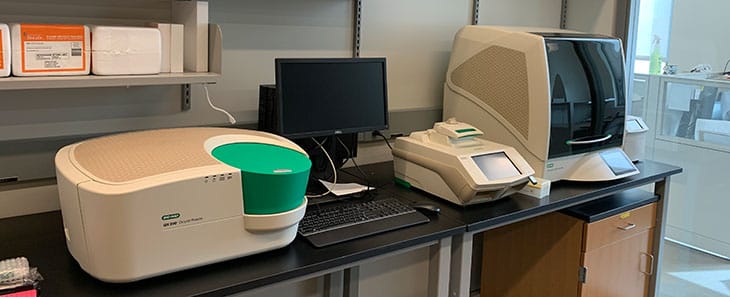
Start up
Passion. Potential. Pitches. Don't miss any of the 2025 New Venture Challenge excitement.
Tune in Friday, April 11 at 1 p.m. for great ideas and fierce competition. Then, join the judges, mentors, spectators and teams as they see who is going home with thousands of dollars in venture financing. The awards broadcast begins at 6:30 p.m. and one team will walk away as the overall best venture.
Central Michigan University’s College of Business Administration is the home of the Isabella Bank Institute for Entrepreneurship and the first Department of Entrepreneurship in the state of Michigan. We are a student-centric hub where experiential, curricular, and external entrepreneurial opportunities intersect.
Our mission is to maximize student success by fostering a campus-wide entrepreneurial mindset that promotes inter-disciplinary collaboration and the creation of new ventures.
We aim to create innovative programming, boost cross-campus and ecosystem collaboration and provide a comprehensive mentoring program.
Our institute provides extracurricular opportunities and is open to all undergraduate and graduate CMU students.
Are you interested in becoming an entrepreneur?
Every journey is unique. Explore the opportunities that interest you.
Public health authorities need to know when COVID-19 starts to spread in an area. That's not easy: The incubation period is long, and many infected people never have symptoms.
But there are clues if you know where to look.
Three Central Michigan University faculty members are engaged in a statewide early warning pilot program to search for signs of the virus in wastewater samples.
The SARS-CoV-2 virus that causes COVID-19 is shed in human waste, including from people who are not showing symptoms or have not yet become ill. It then can be detected in samples from sewers and wastewater treatment plants, with results often available sooner than from human clinical samples.
“The hope is that we can get a really good footprint of what the virus is doing.” — College of Medicine faculty member Michael Conway
The Michigan departments of Environment, Great Lakes and Energy and Health and Human Services are coordinating with local public health departments to enlist counties, universities and institutions across the state in the detection effort through Dec. 30.

The hope is that we can get a really good footprint of what the virus is doing," said College of Medicine faculty member Michael Conway, CMU's principal investigator for the project. "We have three months to collect and analyze data to see if this has utility."
Conway is working with CMU co-principal investigators Elizabeth Alm in Biology and Rebecca Uzarski in Environmental Health and Safety to collect and screen wastewater samples from a number of mid-Michigan locations for the virus' RNA.
They'll have new technology for their research: a $200,000 droplet digital polymerase chain reaction detection system supplied by the state on a five-year contract.
The entire statewide project is backed by a $10 million grant through the federal Coronavirus Aid, Relief and Economic Security Act.
Conway said once testing begins in mid-Michigan, the goal will be to identify general trends by sampling from large areas.
EGLE is coordinating sample collection, lab analysis, data reporting and communication with the local monitoring teams across Michigan, and MDHHS is providing project support to health departments, including how to integrate local wastewater data with other types of COVID-19 surveillance and public health responses.
"Since nearly 70% of Michigan residents rely on public wastewater systems, this COVID-19 surveillance program has the potential to provide critical life-saving data," said EGLE Director Liesl Clark in a news release. "The ability to predict outbreaks on college campuses, at nursing homes, prisons and other congregate care facilities could be a game-changer in our mission to slow the spread of this virus."


Explore special opportunities to learn new skills and travel the world.

Present your venture and win BIG at the New Venture Challenge.

Boost your entrepreneurial skills through our workshops, mentor meetups and pitch competitions.

Learn about the entrepreneurship makerspace on campus in Grawn Hall.

Present a 2-minute pitch at the Make-A-Pitch Competition and you could win prizes and bragging rights!

Connect with mentors and faculty who are here to support the next generation of CMU entrepreneurs.

Are you a CMU alum looking to support CMU student entrepreneurs? Learn how you can support or donate to the Entrepreneurship Institute.